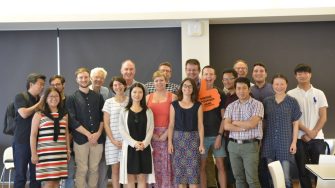Energy Markets at UNSW
Striving towards least-cost and least-regret integration of renewables into energy markets.
Striving towards least-cost and least-regret integration of renewables into energy markets.

We are cognisant of Australia’s role in the global energy transition and seek to extend the impact of our work beyond our borders.
Our work focuses on the challenges and opportunities of clean energy transition within market-oriented electricity industries. We believe in data-driven research inputs and open-source research outputs. To achieve this goal, we are focused on research and development in four key areas:
Our Collaboration on Energy and Environmental Markets (CEEM) has two decades of experience of data-driven research in energy sector transitions with a portfolio of open-source tools including: NEMPY, NEMOSIS, NEMSEER, NEMGLO, and NEMED.
Other projects include:

Australia is uniquely positioned to support the energy transition of our neighbouring countries in the Pacific region. In particular, Australia has the potential to produce excess renewable energy resources that could be shared across borders. In the context of our global region of island nations (compared to regions with shared borders and electrical interconnection) renewable hydrogen export is a promising option.
UNSW has been working with the Australian Government and the International Renewable Energy Agency to explore pathways to a hydrogen economy in the Pacific. This builds on previous UNSW research exploring the opportunity to export Australian renewable hydrogen to Germany, “HySupply: Shipping Australian Sunshine to Germany”. Further collaboration and deeper collaboration will allow this plan to become reality